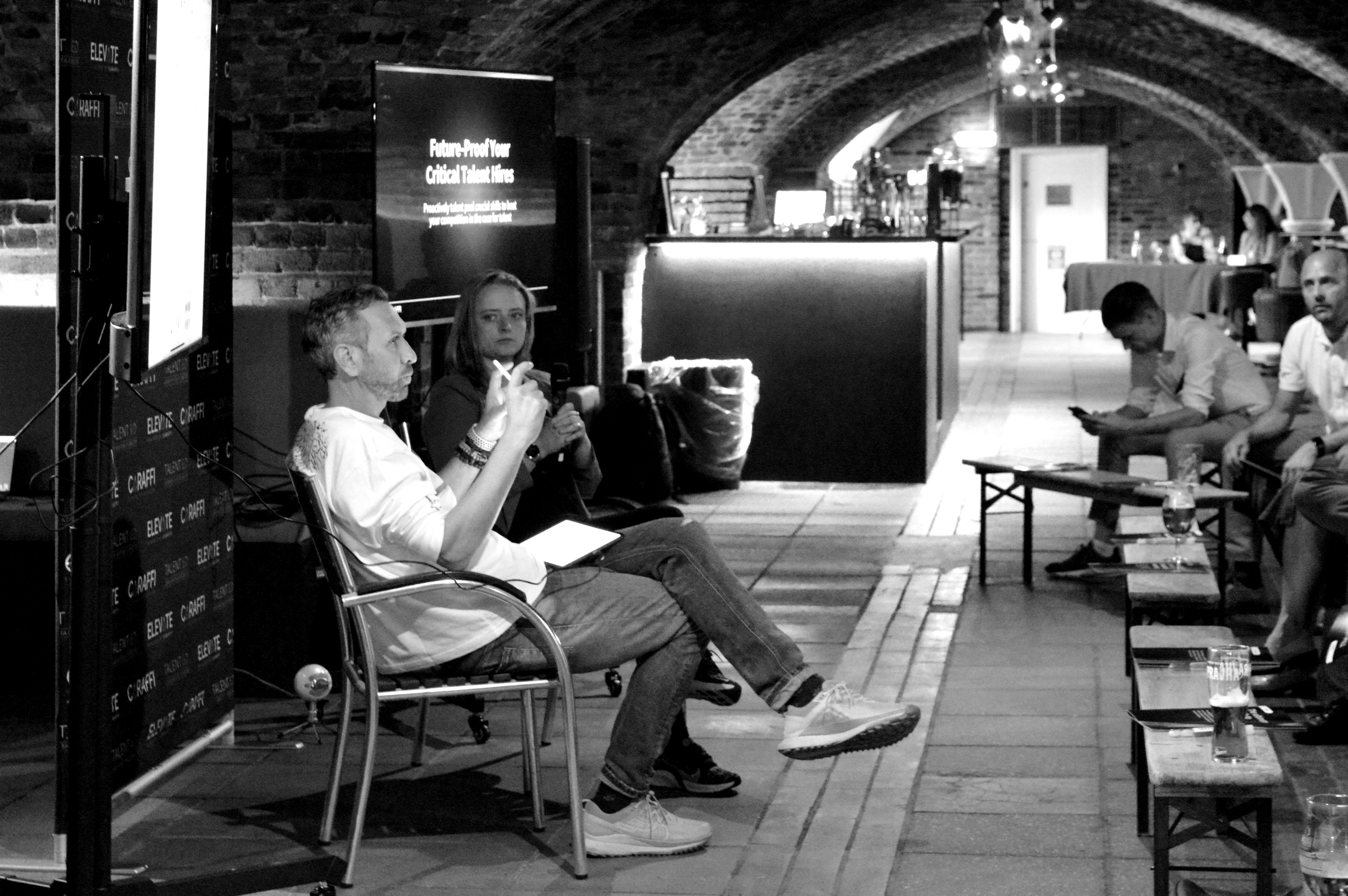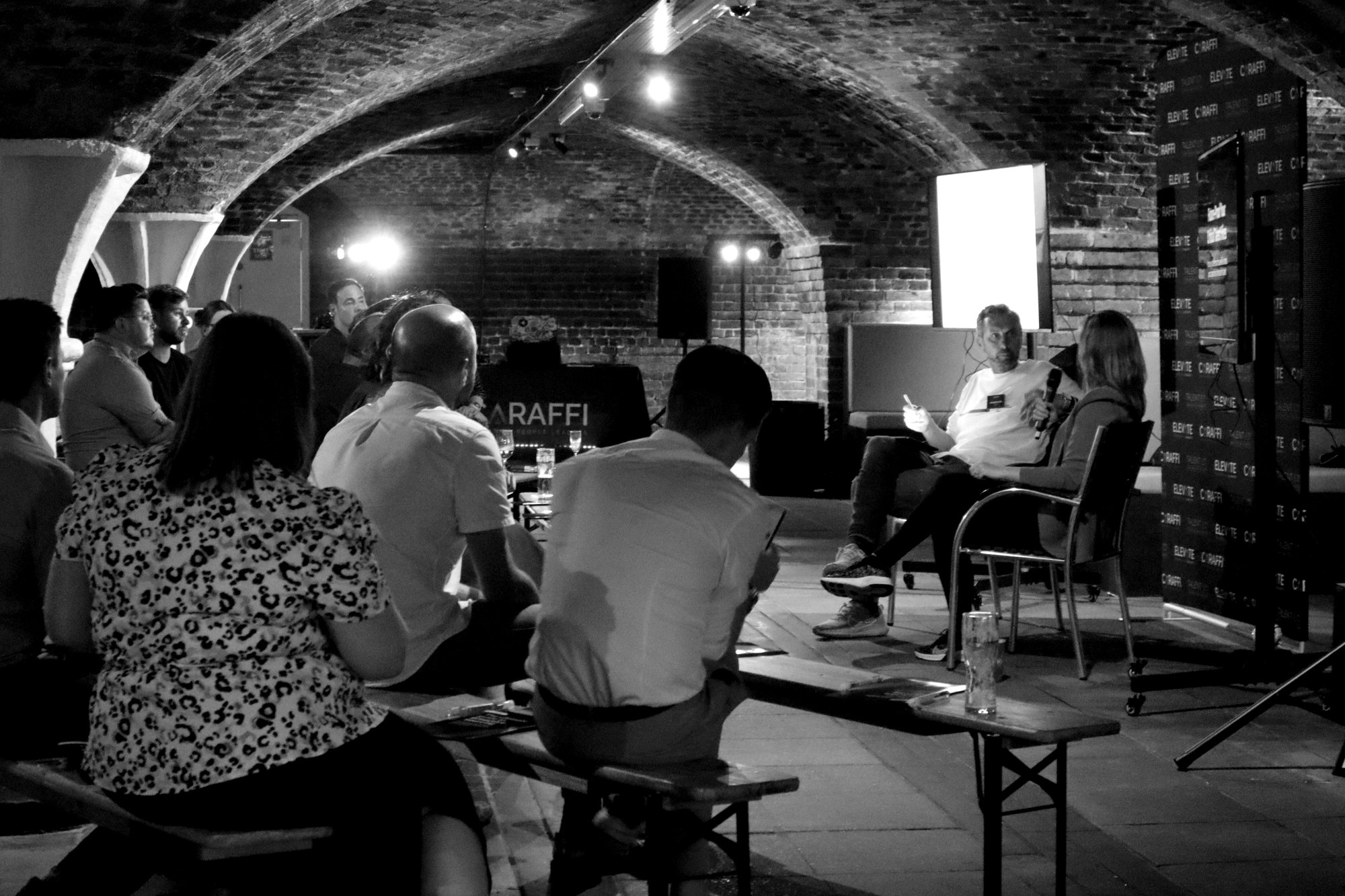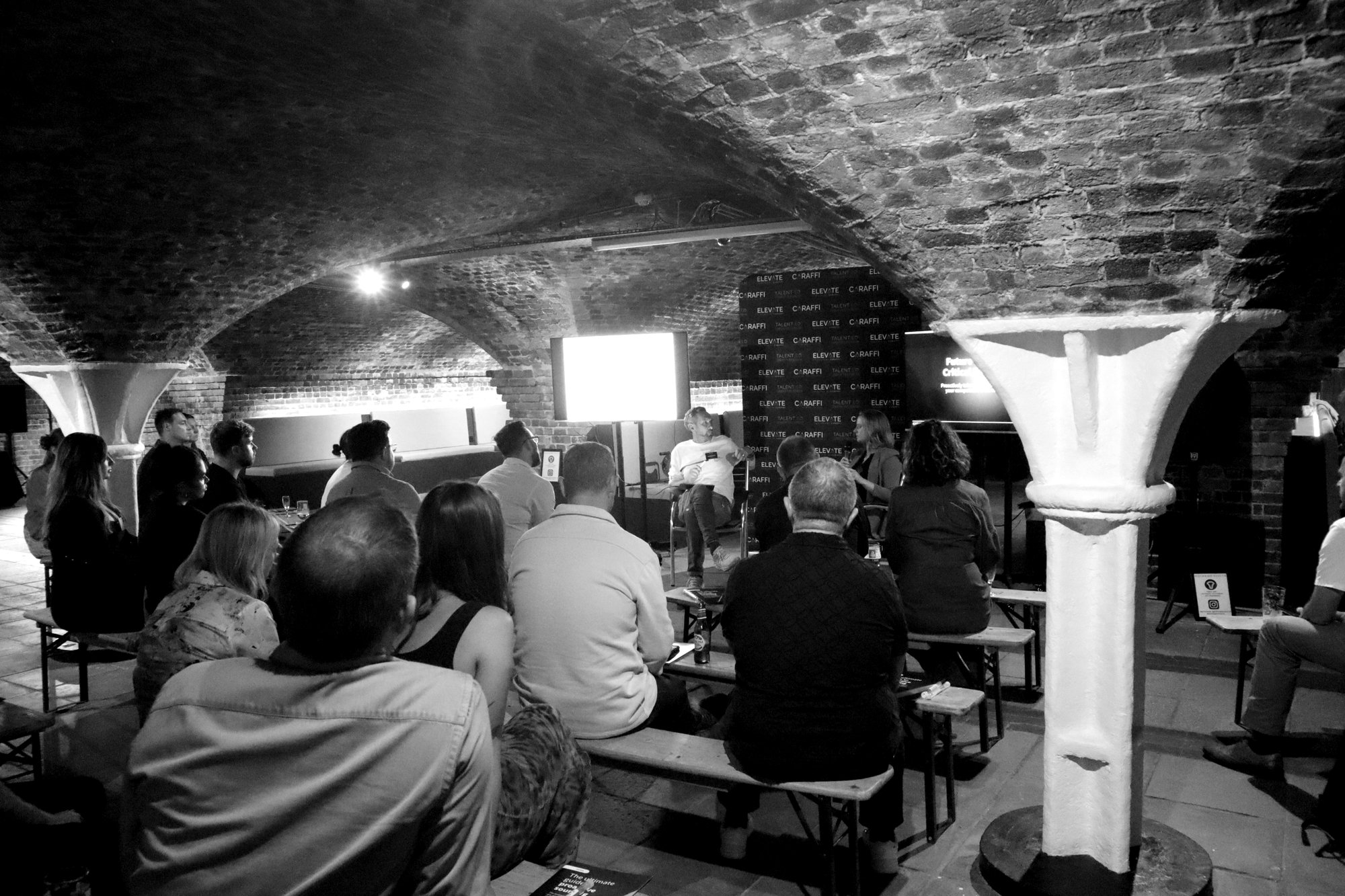Elevate Round Up
Future-Proof Your Critical Talent Hires
Overview
On the 14th September, we were joined by Zoe Watling, Head of TA at Informa, to hear her take on proactive sourcing.
From identifying skillsets to positioning your proactive sourcing hub, her comprehensive insight into the value of proactive resourcing in rapidly growing organisations like Informa. It shone a light on how it has helped her to tackle problems Informa didn’t yet understand, as a means of building impact, and building laser focused solutions to TA challenges.
We then took it to floor to discuss who is currently employing this strategy, their approach, and, most crucially, how they go about measuring its success.

“When you’re recruiting for a brand that no one knows about, and you’re trying to hire the same digital, tech and sales skills as everyone else, you’ve got to try something different.”
Key takeaways
1. How do you identify the right skillsets to use a proactive sourcing approach for?
Identifying the right skillsets for your organisation is at the heart of any proactive sourcing strategy, but how do you know what those skillsets are? Asking these key questions can help to ensure that you’re tailoring your approach to your unique business needs:
- The roles you often need to use external support for- what roles have the highest cost per hire?
- The future critical skillsets that your business will need- what skillsets do you need to support business growth?
- Roles that typically have high time to hire- what roles take the longest to fill and why? Are they senior positions? Junior? IT? Operations?
- Roles that have high turnover and low retention- what roles are you consistently hiring?
- Roles where we struggle to access diverse talent pools- what roles do you struggle to engage diverse talent for and at what levels and functions?
- A great technique for engaging your alumni talent pools-how do you keep the conversation open with alumni?

2. The sell for the business
The benefits of a strong proactive sourcing strategy are wide ranging and impactful.
Speed and agility are two key benefits. They’ll give you the potential to limit agency spend, stay ahead of the curve, and pre-establish engagement for hard to fill digital, tech and sales roles. It’s also an opportunity to access to more diverse talent pools.
That’s not all. This proactive sourcing was also highlighted to be an effective interim solution that has started to build Informa’s brand in the talent market without having to wait for investment for a full EVP and employer brand activation project.

3. The benefits of the market intelligence
A proactive sourcing approach must be founded on research. Research into the skillsets that you know you’ll need to help you start to build a really informed picture of the talent market
The added benefit of this has been huge for Zoe in a rapidly expanding business like Informa. It allows TA to be positioned in the business as the talent experts, leading the conversations on what talent you can attract, and more importantly, retain, in the new markets and countries that the business enters.
This market intelligence is also fed back into the business’s DE&I strategy. By constantly monitoring what messaging is engaging diverse talent, the business has better insights into how it could reach its DE&I goals in the future.

4. How do prove short term ROI for a long term strategy?
Proactive sourcing is a long term play that requires a big investment. So how do you prove ROI quickly on a project that you know will take 12-18-24 months to start giving you real insights into the effects of building and engaging these talent pools?
What are the skillsets your business will need in 6 months? Identifying the ‘quick win’ talent pools that will showcase this is a strategy worth doing. Are there any talent pools where you’ll need lots of people in 18 months, but some vacancies will open sooner. These could become your sweet spot talent pools that allow you to create a strategy that your business can start seeing results from quickly.
The other short-term metrics employed by the room were:
- CRM talent pool volumes
- Cost avoidance metrics looking at money saved on agencies and research market mapping projects which tend to cost tens of thousands of pounds.
- Messaging and content engagement rates
5. What are the long term ROI metrics?
The sourcing hub’s job is to create highly engaged, highly skilled communities for TA to tap into over the next few years. Communities where your organization becomes an employer of choice because of the brand engagement work you’re doing now.
In a year’s time, the metrics that those employing proactive sourcing strategies hope to show an impact on are:
- Increased diversity within the business
- Reduced time to offer
- Increased retention
- Higher candidate feedback scores
- Reduced agency costs
But those are just recruitment metrics. The real impact of this project could be shown by:
- Increased internal and alumni hiring (that affects productivity metrics)
- Increased billings in sales teams
- Decreased project slippage in tech teams

6. How do you position your proactive sourcing hub in your business?
Proactive sourcers do a job that is entirely different to the sourcers within your vacancy fulfilment team.
Clearly establishing that your proactive sourcing hub is designed to work with independently of your current reactive sourcing teams is key to getting buy-in from the wider TA team. At Informa, this was managed with language change – Informa are calling this hub, their “talent networking hub” to showcase that this is a separate, not a replacement, approach.
Everything we do exists to support our purpose of elevating people leaders in their role, career and function
We want to make talent the engine room of every organisation. We want to change how talent acquisition and people leaders see themselves and their ability to drive business performance.
Whether you're new in role or in the midst of a transformation, Caraffi aims to elevate your capability, impact and reputation within your business and beyond.
Contact us
10 Bishops Square, London, E1 6EG
0203 8622 800
info@caraffi.co.uk



